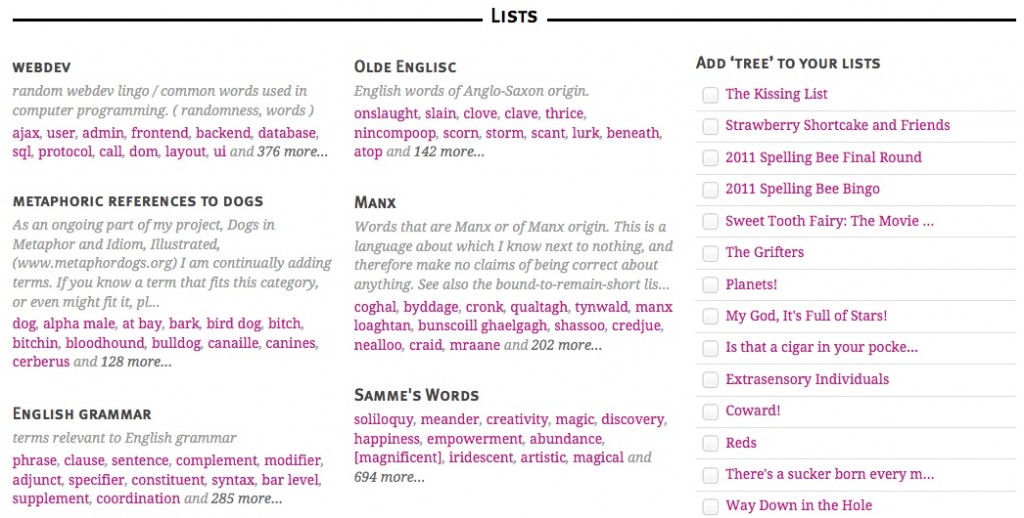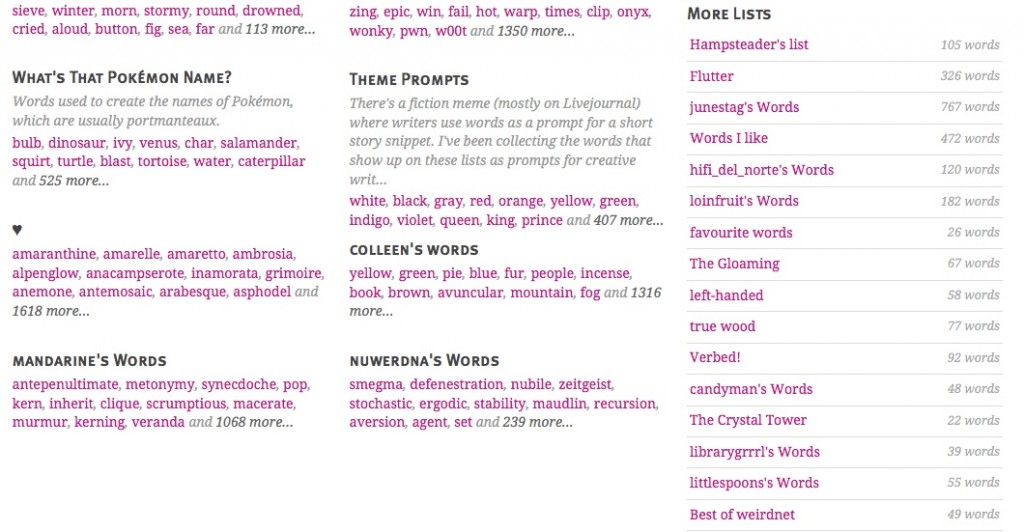
Unless you’ve been locked up in Azkaban all summer, you’ll know that the very last Harry Potter movie opens today. We at Wordnik love the JK Rowling series, and not just because of the magic and butterbeer.
“The Harry Potter books,” writes Jessy Randall in this essay from VERBATIM, “are not just good literature but a treasury of wordplay and invention,” and we couldn’t agree more.
There are the Latin-based spells. Reducio, which reduces the size of an object, notes Randall, comes from the Latin reducere (re- “back” + ducere “bring, lead”). Some more examples from Randall:
Reparo! (Latin reparare) repairs. Riddikulus! (Latin ridiculus) turns an enemy— usually a Boggart—into something ridiculous or laughable. Lumos! (Latin lumen, ‘light’) causes illumination. Impedimenta! (Latin impedimentum) impedes or slows the enemy. Sonorus! (Latin sonor, ‘sound;’ English sonorous) causes one’s wand to become a microphone. Stupefy! (Latin stupefacere, stupere, ‘to be stunned’) stupefies the enemy, causing confusion. Expelliarmus! (Latin expellere, ‘to drive out’) expels your opponent’s wand from his or her hand.
Many of Rowling’s terms are also common words with other meanings. While a muggle is known in the Potterverse as “a person who has no magical abilities,” it also once meant “a contest between drinkers to decide which of them can drink the most,” and also referred to a marijuana cigarette, hot chocolate, and “to be restless; to remove, deface or destroy a geocache.” A squib is the unmagical offspring of magical parents but also “a small firework that is intended to spew sparks rather than explode; a short piece of writty writing; an unimportant, paltry, or mean-spirited person.”
Characters’ names are often also common words. A dumbledore is a bumblebee. Snape is a ship-building term that means “to bevel the end of (a timber or plank) so that it will fit accurately upon an inclined surface.” Hagrid is the past participle of hagride, which means “to harass or torment by dread or nightmares.” Skeeter is a term for an annoying pest, and not just Rita Skeeter, blood-sucking journalist. Mundungus is “waste animal product” or “poor-quality tobacco with a foul, rancid, or putrid smell,” a good name for a sneaky thief.
If you’re interested in all the words of Harry Potter, you’re in luck: we have Potterlists here, and here, and here, and here. If you love all things magical, check out It’s Magic! and -Mancy, which list different kinds of -mency and -mancy words, or divinations. This one is about extrasensory individuals, including sibyl, “an old woman professing to be a prophetess or fortune-teller; a sorceress,” and the namesake of Sybill Trelawney, Hogwarts’ professor of divination. Also don’t forget spells, spellcasters, and amulets.
Whatever your fancy, bring your wands and remember, in the words of Hermione Granger, it’s wingardium levi-O-sa!
[Photo: In Flex We Trust]







